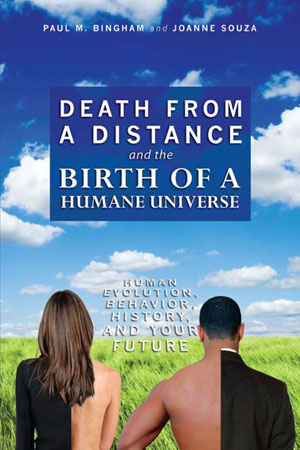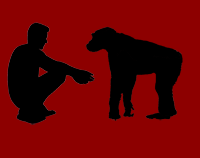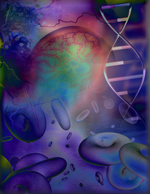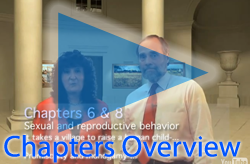The Book

 Paul M. Bingham and Joanne Souza's Death from a Distance and the Birth of a Humane Universe:
Human Evolution, Behavior, History, and Your Future is an utterly fascinating voyage into the evolution of human
beings and of our properties, social behavior, history, and contemporary lives. We learn more than the science of being human;
we are pulled into what might be the most significant question of the century: Of all living things on this planet,
what makes humans so utterly unique?
Paul M. Bingham and Joanne Souza's Death from a Distance and the Birth of a Humane Universe:
Human Evolution, Behavior, History, and Your Future is an utterly fascinating voyage into the evolution of human
beings and of our properties, social behavior, history, and contemporary lives. We learn more than the science of being human;
we are pulled into what might be the most significant question of the century: Of all living things on this planet,
what makes humans so utterly unique?
 The elements of our evolution - chemistry, history, psychology, behavior, environment, etc. are broken down into building blocks, comprehensible components. Bingham and Souza have
assembled these components into a novel answer to this most significant question, a powerful gestalt, a theory of
human uniqueness that clearly explains how we human creatures first came into existence and then evolved to what
and who we are today.
The elements of our evolution - chemistry, history, psychology, behavior, environment, etc. are broken down into building blocks, comprehensible components. Bingham and Souza have
assembled these components into a novel answer to this most significant question, a powerful gestalt, a theory of
human uniqueness that clearly explains how we human creatures first came into existence and then evolved to what
and who we are today.
 From what the authors term our original "accidental evolution," their Self-Interested Enforcement
Theory (SET) explains that humans first acquired something unprecedented - the ability to inexpensively coerce one
another. Wonderfully and ironically, from this new capacity for mutual violence emerges the first real capacity for
peace, for our unique "common humanity." Our properties all evolve and our history emerges as we deploy this novel
coercive capacity in new ways to engender that most fundamental of human behaviors, true collaboration, at ever
larger scales. We not only find insight into how and why we came to be, we also acquire the ability to take command
of our common future in a fundamentally new way. This is a disquieting, and yet ultimately uplifting, exploration into
the very best of our potential.
From what the authors term our original "accidental evolution," their Self-Interested Enforcement
Theory (SET) explains that humans first acquired something unprecedented - the ability to inexpensively coerce one
another. Wonderfully and ironically, from this new capacity for mutual violence emerges the first real capacity for
peace, for our unique "common humanity." Our properties all evolve and our history emerges as we deploy this novel
coercive capacity in new ways to engender that most fundamental of human behaviors, true collaboration, at ever
larger scales. We not only find insight into how and why we came to be, we also acquire the ability to take command
of our common future in a fundamentally new way. This is a disquieting, and yet ultimately uplifting, exploration into
the very best of our potential.





